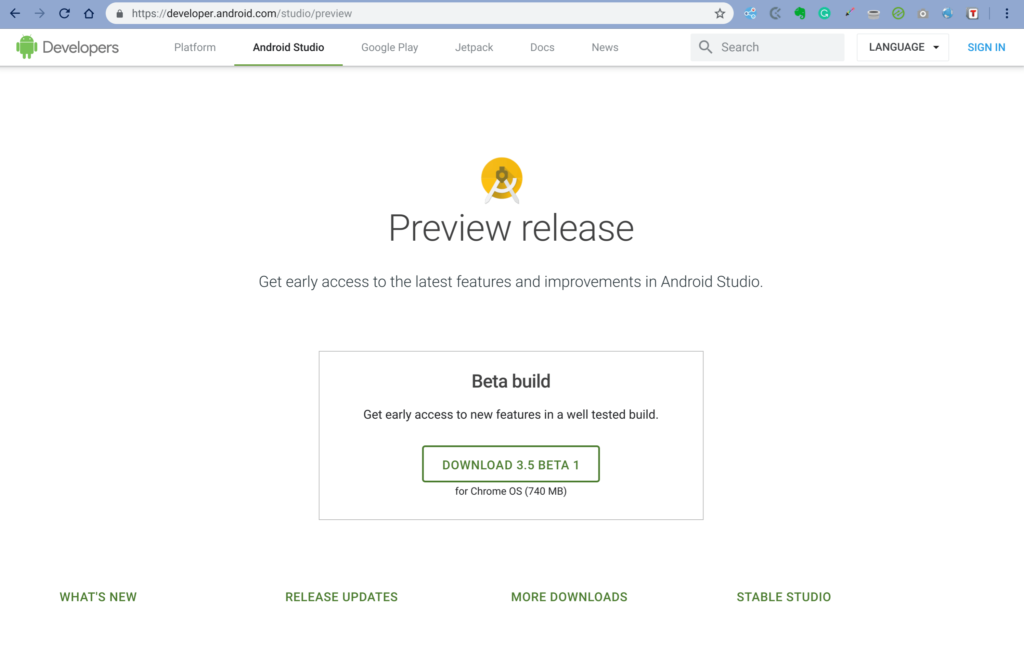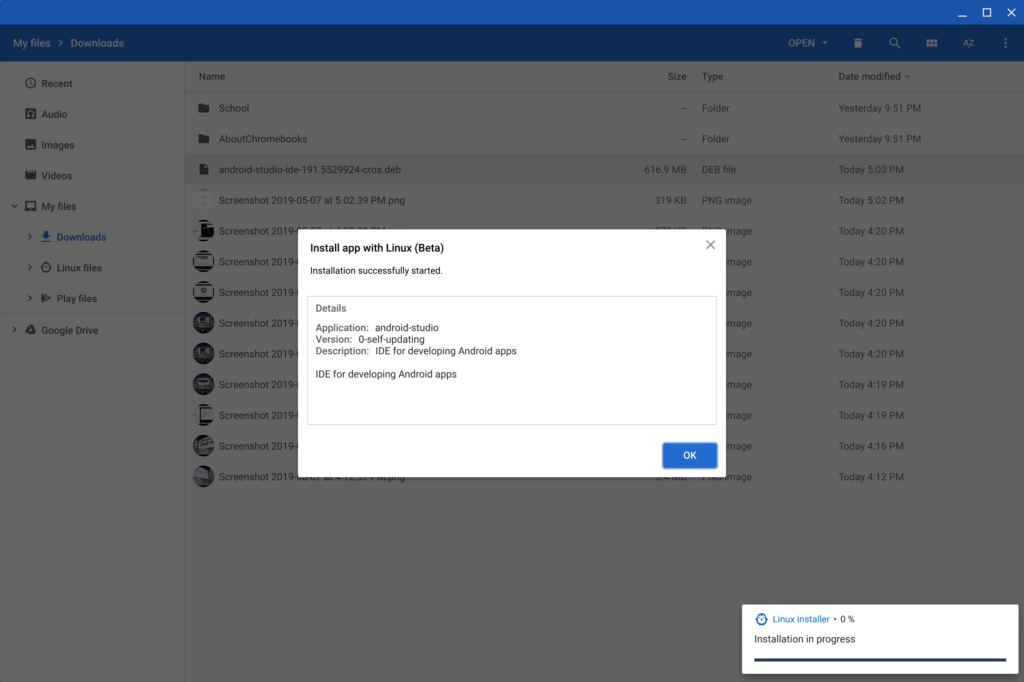So the main Google I/O 2019 keynote has come and gone with barely a mention of Chrome OS or Chromebooks. After it was over, I tuned in to the Developer keynote to see if there would be any news there.
As expected, there was no Chromebook hardware news. But even on the developer side, there wasn’t much either. Well, at least not much that hadn’t been previously announced.
If you recall last year’s I/O event, Project Crostini – now known as the Linux (Beta) feature for Chrome OS – was shown off. And Google also said that Android Studio would be fully supported on Chromebooks. To that end, the latest beta release of the developer toolset has a simpler installation.

Clicking the download link pulls down an Android Studio .deb package specifically for Chrome OS. From there, it’s just a quick click or two in the Files app to install the .deb package.

That’s the good news. The bad news – if like me, you were hoping for Android Virtual Device (or emulation) support – is that it isn’t there. However, with the new USB device support and Android debugging features coming to the Stable Channel of Chrome OS, you should be able to run an Android app under development via USB from a Chromebook.
And speaking of Chromebooks for Android development, Google has an official list of recommended hardware requirements:
- 8 GB RAM minimum
- 4 GB of available disk space minimum
- 1280 x 800 minimum screen resolution
- Intel i5 or higher (U series or higher)
This is Google’s list of recommended devices:
- Lenovo Yoga C630 Chromebook
- Acer Chromebook Spin 13
- HP Chromebook x360
- HP Chromebox G2
- Acer Chromebox CXI3
I noticed that the Pixel Slate I use for coding wasn’t on the list which caused me to do a double-take but it has a Y-series processor, not a U-series. Regardless, Android Studio does run on my Core i5 model, albeit with a bit of lag with the preview release.
Note that the Pixelbook also uses a Y-series CPU, which is why it too doesn’t appear on the list of recommended devices. That seems strange considering it’s still the “flagship” Google-branded Chromebook.
It’s possible that more Chrome OS news will arrive over the coming days at specific I/O developer sessions, so stay tuned. Until then, don’t feel like you’ve missed out on anything Chromebook related at Google’s annual developer event.


9 Comments
The beginning of the end for the OG PixelBook. They probably got their eyes set on the new ones coming out this for the exclusive stuff.
Support for the pixel slate is a joke. It’s as nonexistant as support for the pixel c.
Can i install android studio on lenovo chromebook duet? Plz help me
That’s not going to work (well, if at all) based on the recommended hardware requirements: 8 GB RAM or more,
4 GB of available disk space minimum,
1280 x 800 minimum screen resolution,
Intel i5 or higher (U series or higher) recommended
typo in the list of supported hardware… Acer not ASUS (check the link)
Good catch. That typo is actually on Google’s page; I just cut and pasted the list. I’ll make the correction here but of course, they need to fix the mistake on their page. Thanks!
Man, that is a really short list of devices that can be used for Android Studio. The obvious difference being the U series chip which does make sense. Still seems odd that Google doesn’t have a U series device that can fill the void from their own hardware set.
I’d assume with the Fall hardware refresh cycle we’ll see more power laptops that can run Android Studio.
It is a short list that’s likely to grow soon. And to be honest, you can run Android Studio on the Y series devices, it’s just not recommended for performance reasons.
USB device support and debugging are in the works and developers even showed a quick look at pairing Android Studio with a Pixel 2 XL phone. Honestly, it was a bit over my head but it is clear that Google is working hard to make Chrome OS a true developer’s tool.